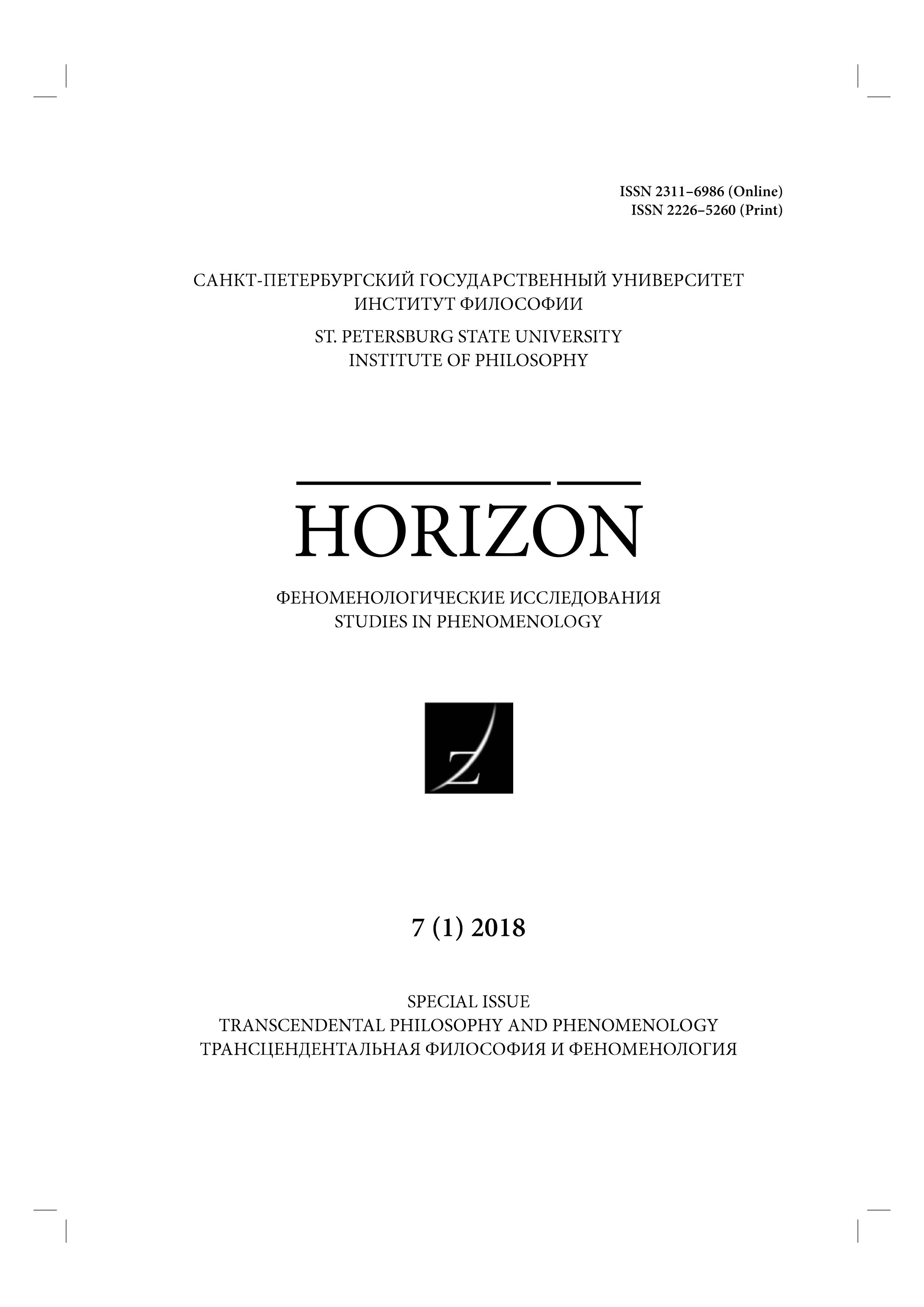THE DEFIANCE OF THE TRANSCENDENTAL BY PHANTASY AND IMAGINATION IN HUSSERL AND KANT
THE DEFIANCE OF THE TRANSCENDENTAL BY PHANTASY AND IMAGINATION IN HUSSERL AND KANT
Author(s): AZUL KATZSubject(s): German Idealism, Phenomenology
Published by: Издательство Санкт-Петербургского государственного университета
Keywords: Kant; Husserl; phantasy; imagination; transcendental philosophy; subjectivity; intersubjectivity
Summary/Abstract: The present paper explores the place that imagination and phantasy hold in the transcendental philosophies of Kant and Husserl when they are not subordinated to functions that are external to them. The Kantian imagination (Einbildungskraft) has a key function within reason, both theoretical and practical, but it seems to exhibit its true potential in the aesthetic subjective domain, as productive imagination — in addition, this aesthetic domain is defined as the most properly human. In Husserl’s work, phantasy (Phantasie) has a relevant methodological function in the intuition of essences and plays other constituting roles, for example in empathy — and therefore in intersubjectivity. Nevertheless, the Husserlian phantasy shows its full potential not when it is bound to a presentation through perception — as it does in its constituting functions, but when it is pure and moves freely in an enlarged eidetic sphere. Husserlian phantasy would not only allow the transit from facts to essences, but it would also allow the reverse path, limiting essences towards facticity. In this framework, a final consideration points to the challenges raised by the exploration of this intermediate sphere of experiences involving productive imagination and pure phantasy, regarding the hierarchy and margins of the transcendental constitution.
Journal: Horizon. Феноменологические исследования
- Issue Year: 7/2018
- Issue No: 1
- Page Range: 57-78
- Page Count: 22
- Language: English

